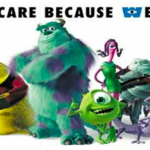We probably shouldn’t be telling you this.
Excessive news consumption is bad for your physical and mental health, a new study proposes.
As a purveyor of daily news whose business model rather depends on our readers’ feverish need to stay up to date, TMR’s interests might be better served by keeping this finding to itself – but no, this is our commitment to bringing you all the news that’s fit to print.
An article in the journal Health Communication explores the concept of “problematic news consumption”, hypothesises that it worsens mental and physical health, then tests the hypothesis using a survey.
Surveying the existing literature, the authors acknowledge problems with the “addiction” classification, and suggest that, rather than to induce a high or emotional numbness, this disorder is more of a compulsion, in which media is consumed to bring relief from obsessive thoughts and to alleviate emotional distress.
We at TMR and especially The Back Page would dearly like to think our work can alleviate distress, but we suspect that’s not what they mean.
They conceptualise problematic news consumption as a “cycle of being absorbed in news content (i.e., issues and events), compulsively checking the news, and experiencing interference with daily life”. Their criteria are “transportation and preoccupation (being absorbed), misregulation and underregulation (compulsively checking), and interference” (when a problematic behaviour “becomes disruptive and creates interpersonal and intrapsychic conflicts”).
While problematic media behaviour (including smartphone use and gaming) already have established links to anxiety and depression, the authors write, problematic news consumption may be particularly harmful “because the news consistently focuses on negative and threatening issues and events … the more severe a disaster is, the more news attention it receives”.
We’re … sorry?
The authors used an online survey of 1100 US adults that intentionally oversampled political partisans. Participants self-rated for “transportation (e.g., ‘I become so absorbed in the news that I forget the world around me’), preoccupation (e.g., ‘My mind is frequently occupied with thoughts about the news’), misregulation (e.g., ‘Reading and watching the news reduces my anxious feelings’), underregulation (e.g., ‘I find it difficult to stop reading or watching the news’), and interference (e.g., ‘I often do not pay attention at school or work because I am reading or watching the news’)”.
They were classed into five categories from non-problematic to severely problematic, with 16.5% falling into the severely problematic category.
What the authors call mental and physical “ill-being” was measured on two composite scales; mental ill-being included stress and anxiety, while physical ill-being included fatigue, physical pain, concentration issues, and gastrointestinal issues. The results were adjusted for demographics and big five personality traits.
The team found both mental and physical ill-being were significantly greater in the severe category than in the moderate category, and greater in the moderate than the minimal category.
“The finding that 16.5% of our sample are classified as having severely problematic news consumption is particularly alarming, especially since those with higher levels of problematic news consumption experience significantly greater mental and physical ill-being than those with lower levels of problematic new consumption,” the authors write, going on to propose “media literacy campaigns” as a “top priority” to raise awareness of the dangers.
We’re going to stop short of endorsing this, obviously – we’d like to think of that 16.5% as our ideal readers.
And just as the world has been exceeding all expectations for disasters for the mainstream press to report on in the past few years, we’re sadly confident that general practice won’t run out of bad news to report on any time soon, much as we would love it to. Go on, Mr Butler: put us out of business.
If you see something that stops you mid-doom scrolling, tell penny@medicalrepublic.com.au.







